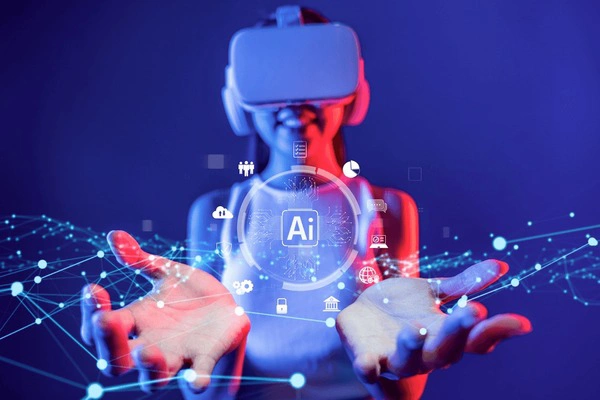
The Power of AI in Personalized Content Creation
In a world where digital interactions are ubiquitous, AI's ability to tailor content to individual preferences is revolutionizing user engagement. By analyzing user data, AI creates personalized experiences, making digital platforms more engaging and relevant. From enhancing user loyalty to addressing privacy concerns, discover the transformative impact of personalized content creation in today's tech-driven landscape.
Maya Turner
29/11/2024 - 7 months ago

Understanding Personalized Content
In today's digital age, personalized content creation is transforming how we interact with online platforms. Imagine opening your favorite app and seeing content that feels like it was made just for you. This isn't magic; it's the power of artificial intelligence (AI) at work. AI analyzes your behavior, likes, and dislikes to create a unique experience tailored to your preferences. This approach makes digital platforms more engaging and relevant to individual users.
The process begins with collecting user data, which might sound complex, but it's an everyday occurrence. Each time you click, search, or like something online, you're providing data. AI takes this information and learns from it, building a picture of what you enjoy and prefer. This continuous learning process allows it to suggest content that aligns with your tastes, making your digital journey smoother and more enjoyable.
For many, this personalized approach is not just convenient but also empowering. It means that individuals have more control over what they see and engage with online. Instead of being bombarded with irrelevant content, users find themselves in a digital environment that caters to their interests. This shift towards personalization represents a significant advancement in how technology can enhance our online experiences.
How AI Enhances User Engagement
AI's ability to tailor content to individual preferences significantly boosts user engagement. When people encounter content that resonates with them, they are more likely to interact with it. Whether it's reading an article, watching a video, or shopping online, personalized content keeps users engaged longer. This increased engagement is beneficial for both users, who enjoy more relevant content, and platforms, which see higher user retention rates.
One way AI enhances engagement is through recommendation systems. You've likely experienced this on platforms like Netflix or Spotify, where suggestions seem spot-on. These systems analyze your past behavior to predict what you might enjoy next. By presenting tailored recommendations, AI helps users discover new content that aligns with their preferences, keeping them coming back for more.
Furthermore, personalized content can create a sense of connection between users and platforms. When users feel understood and valued, they are more likely to develop loyalty to the platform. This emotional engagement is crucial for building long-term relationships with users, making them feel like a valued part of the community.
Challenges and Considerations
As with any technological advancement, there are challenges to consider with personalized content creation. Privacy concerns are at the forefront, as collecting and analyzing user data can feel intrusive. Users need assurance that their information is being used responsibly and securely. Transparency about data usage and robust privacy policies are essential to building trust with users.
Another challenge is the risk of creating echo chambers. When users are constantly shown content that aligns with their existing views, it can limit exposure to diverse perspectives. This can reinforce biases and limit learning opportunities. To mitigate this, platforms should aim to include a mix of content that challenges users' viewpoints while still aligning with their interests.
Despite these challenges, the benefits of personalized content are undeniable. It can make digital experiences more enjoyable and efficient, helping users find what they're looking for faster. As technology continues to evolve, finding a balance between personalization and privacy will be key to maximizing these benefits.
The Future of Personalized Content
Looking ahead, the future of personalized content is promising and full of potential. As AI technologies continue to advance, the precision and relevance of content recommendations will only improve. This means that users can expect even more tailored and enriching digital experiences in the years to come.
Emerging technologies such as augmented reality (AR) and virtual reality (VR) present new opportunities for personalization. Imagine walking through a virtual store where every item is selected based on your preferences, or attending a virtual concert with a setlist curated just for you. These innovations could redefine the boundaries of personalized content, offering immersive experiences that feel uniquely crafted for each user.
Ultimately, the goal is to create digital environments that are not only personalized but also inclusive and empowering. By focusing on user needs and preferences, AI-driven personalization can help bridge gaps in accessibility and provide users with experiences that enhance their quality of life. The future of personalized content is not just about technology; it's about creating meaningful connections between people and platforms.


















